Iran Shouldn’t Have Roles In UN Human Rights Ecosystem – US
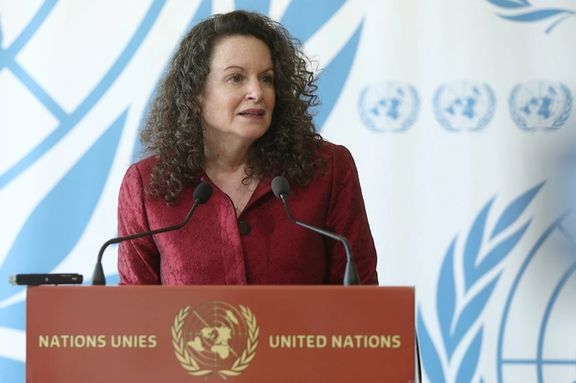
US ambassador to the UN's Human Rights Council condemns Iranian officials in UN leadership roles on the anniversary of Mahsa Amini's death.

US ambassador to the UN's Human Rights Council condemns Iranian officials in UN leadership roles on the anniversary of Mahsa Amini's death.
Michèle Taylor's comments come as the Islamic Republic is set to chair the UN Human Rights Council Social Forum this November.
Taylor stated, "As we approach the one-year anniversary of Mahsa Amini's tragic death, let me be clear: The US reasserts that Iran, with its appalling human rights record, has no place in leadership roles within the UN human rights ecosystem. The time for accountability is now."
The controversy surrounding Iran's involvement in UN leadership positions has been a contentious issue. In June, the Islamic Republic secured a leadership role as one of the vice-presidents of the UN General Assembly, prompting reactions from several member states and numerous activists.
In May, Iran's UN ambassador, Ali Bahraini, was appointed to chair the UN Human Rights Council 2023 Social Forum, leading to widespread anger and indignation. The forum is scheduled to take place in Geneva on November 2nd and 3rd.
In response to these appointments, UN Watch, an independent human rights organization, launched a petition to UN Secretary-General Antonio Guterres, urging him to cancel the appointments. Additionally, UN Watch submitted a resolution to the UN aimed at overturning the decision, drawing further attention and scrutiny to Iran's involvement in UN leadership positions.
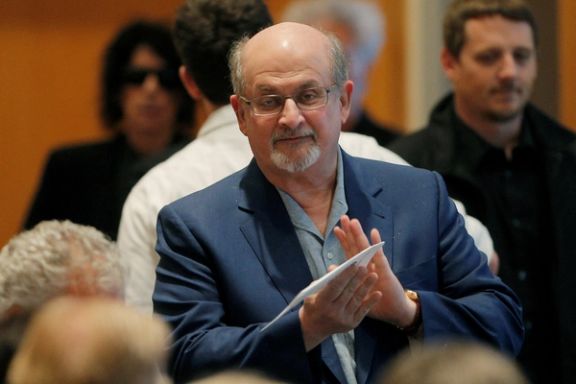
The investigation into last year’s nearly fatal attack on Salman Rushdie has expanded to explore potential international involvement, according to a US district attorney.
Jason Schmidt, the US district attorney overseeing the case, revealed a separate inquiry led by the US federal government, specifically the US Attorney's Office into the case of Hadi Matar with a focus on Iran. Matar, a 25-year-old man accused of stabbing Rushdie multiple times during the writer’s appearance at a summer cultural festival last August is now accused of having possible connections to foreign entities.
“There are some areas that we have to sort of confine ourselves to the four corners of the charges that we've asserted, which is essentially an attempted murder in the second-degree charge. That's our top count,” said Schmidt.
This scrutiny is linked to Iran's historical involvement due to Ayatollah Khomeini's 1989 fatwa against Rushdie because of what he asserted were sacrilegious sections regarding Islam in Rushdie's novel, "The Satanic Verses."
Iranian religious groups have also offered rewards for Rushdie, with such offers extending as recently as last year.
While Matar's assault on Rushdie was initially seen as an individual act, concerns have arisen regarding foreign support, especially given Matar's time in Lebanon and his possession of a counterfeit Hezbollah-related ID.
The investigation's complexity extends beyond local jurisdiction, involving national security and diplomacy amid ongoing negotiations with Iran.
Experts suggest that Matar was possibly influenced by Hezbollah during his time in Lebanon and that this may have played a role in his alleged attack. Iran has denied direct involvement but expressed support for the attack.
The focus of the investigation remains on Matar, with the US State Department imposing sanctions on an Iranian organization linked to bounties on Rushdie.
Tensions between the US and Iran have escalated in recent years, marked by events such as the assassination of General Qasem Soleimani and alleged plots against US officials.
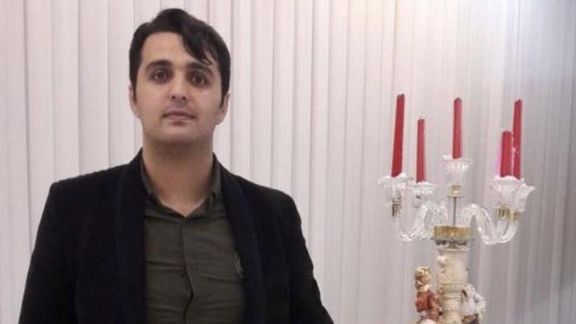
Angered by the death of imprisoned protester Javad Rouhi, Iranians are demanding action as international rights groups urge probe into his tragic passing.
Activists and dissidents are gripped by profound shock and grief as news of the death in custody of one of the icons of Iran's current protest movement reverberates.
While human rights organizations have stressed the urgent need for a United Nations investigation and international action to hold the Islamic Republic regime accountable, activists demand a declaration of public mourning and launching nationwide protests in his name.
The Women, Life, Freedom movement began last September when 22-year-old Iranian-Kurdish woman Mahsa Amini was killed in the custody of the hijab police. Now with her death anniversary just two weeks away, the passing of the 35-year-old protester from the northern city of Amol, after months of reported torture and physical abuse, has reinvigorated regime critics.

Rouhi was incarcerated in Nowshahr prison in Mazandaran province and had been given a triple death sentence over unsubstantiated allegations of leading the protests in his hometown and burning a copy of Quran, which he denied. The only video of Rouhi on the night of his arrest shows him dancing in the circle of the crowd.
The Supreme Court overturned his death sentence, and he was put in “temporary detention” awaiting re-sentencing. Amnesty International reported in January of severe physical and psychological abuse during Rouhi's detention, a major part of which was solitary confinement.
On Thursday, the right group said the death in custody of “the arbitrarily detained protester exposes the Iranian authorities’ abhorrent assault on the right to life amid an ongoing human rights crisis and must be effectively and independently investigated.”
Amnesty International has documented at least 72 questionable deaths in Iranian prisons since January 2010. In 46 of these cases, informed sources said the deaths resulted from torture or other ill-treatment by intelligence and security agents or prison officials. Regime authorities have persistently refused to conduct transparent investigations, nor have they held any official accountable.
The United Nations Principles on the Effective Prevention and Investigation of Extra-Legal, Arbitrary, and Summary Executions mandates “thorough, prompt and impartial investigation” of all suspicious deaths in custody to “determine the cause, manner and time of death, the person responsible, and any pattern or practice which may have brought about that death.”
Official reports say that he had a seizure at 3:45am on Thursday and was urgently transferred to hospital, where he was pronounced dead. Tasnim News Agency, affiliated with the IRGC, reported that a judicial order had been issued to inspect the prison's CCTV cameras, document the deceased's personal belongings including notes and medications, and conduct a post-mortem examination and toxicology tests to ascertain the cause of death.
Human Rights Watch quoted an informed source as saying that security forces have pressured the family to arrange a private burial.
“The Iranian prison authorities’ egregious record of torture and mistreatment makes Javad Rouhi’s death in custody more than a little suspicious,” said Tara Sepehri Far, senior Iran researcher at Human Rights Watch. “An international inquiry is needed since there’s no reason to believe Iranian authorities will carry out a transparent investigation.”
The rights watchdog urged the Independent International Fact-Finding Mission on the Islamic Republic of Iran -- which the UN Human Rights Council established in September 2022 -- to investigate Rouhi’s death in custody. “The United Nations fact finding mission should investigate all torture and deaths in custody related to the protests in Iran,” Sepehri Far said. “Sadly, the case of Javad Rouhi is just the latest one.”
Iran Human Rights (IHRNGO) seconded the call on the UN Fact-Finding Mission to probe Rouhi’s death. IHRNGO Director Mahmood Amiry-Moghaddam said, “Javad Rouhi’s death must be investigated as an extrajudicial killing in prison by the UN Fact-Finding Mission. Ali Khamenei and all individuals and organizations involved in his arrest, torture and detention are responsible for his death and must be held accountable.”

Activist and journalist Masih Alinejad said on her Instagram page, "Let's make Javad Rouhi's name a symbol of our revolution. They killed Javad Rouhi too. They had sentenced him to execution, but they executed him secretly to minimize the costs for the Islamic Republic. Let's not allow them to succeed."
Nazanin Boniadi, another opposition activist, said, "Javad Rouhi's relentless resistance reflects the enduring spirit of the Iranian people's great revolution. Neither the horrendous tortures nor the ludicrous execution orders could stop him."
Siamak Montazeri, a former political prisoner, said in a video message, "Today, this ruthless and criminal regime has taken Javad Rouhi's life in the same dirty way they killed Mahsa Amini," calling for public mourning and urging people to take to the streets to protest against “this blatant crime and government-sponsored murder."
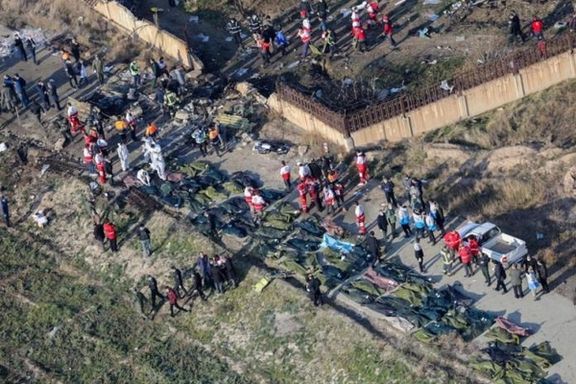
The Association of Families of Victims of Flight PS752 has issued a call for a global gathering on the anniversary of Mahsa Amini’s death.
The group is organizing a rally on September 16th, the first anniversary of the government's killing of Amini in police custody and are urging people worldwide to join. “We are uniting on the streets around the globe to amplify the voices of people of Iran”
The Ukraine International Airlines Flight PS752 was shot down by two air-defense missiles fired by the Islamic Revolutionary Guard Corps (IRGC) on January 8, 2020, shortly after taking off from Tehran's Imam Khomeini International Airport.
The Association's call to action was published on the social media network X and resonates with the powerful message: "Shout her name! Her name is our secret code. Say you haven't forgotten. Say you don't forgive."
Accompanying this call is a video featuring several families of the victims who lost their lives when the Ukrainian plane was shot down.
A key passage of the call states: "Say their names! The names of those who stood up. The names of brave Iranian girls and boys. The names of those who fell to the ground. The names of those who said no. The names of those who are in prison. The names of those who fought."
In the past week, 27 organizations and groups have united to issue a collective call for a global gathering on this significant day.
Additionally, some families affected by the four decades of crimes perpetrated by the Islamic Republic are planning to host an exhibition showcasing photos and memorabilia that serve as poignant reminders of their loved ones in Stockholm.
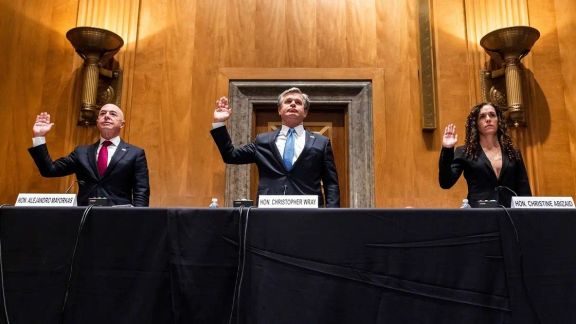
As information about secret talks with Tehran remain scarce, US lawmakers demand to know how American officials are being protected against Iran’s threats.
Reps. Mark Green (R., Tenn.), the House Homeland Security chair, and August Pfluger (R., Texas) have written to Homeland Security Secretary Alejandro Mayorkas, FBI Director Christopher Wray and Director of National Counterterrorism Center Christine Abizaid, “to request additional information about the persistent threats posed by Iran’s campaign to direct operations against U.S. persons or other targets in the U.S. homeland.”
Since the targeted killing of Qasem Soleimani, Iran’s top military and intelligence operator in the Middle East, in January 2020, the Iranian regime has repeatedly threatened revenge of former Trump administration officials.
The Justice Department revealed on August 10, 2022, that an operative of Iran’s Revolutionary Guard tried to hire a hitman in the US to kill former National Security Adviser John Bolton.
Bolton told Iran International Television at the time that he was not surprised an indictment was unsealed because he was kept informed “in general terms until late in 2021 when it was determined I would again get secret service protection.”
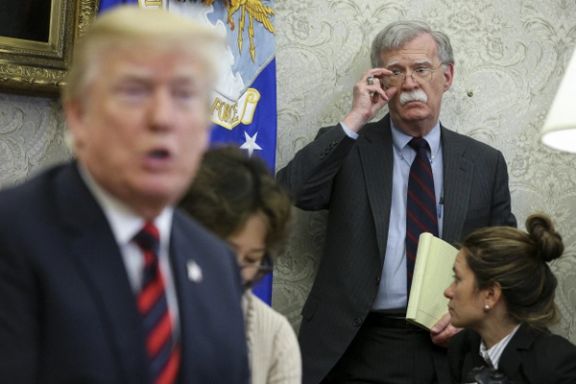
Congressmen Green and Pfluger citing Bolton’s case also mentioned threats against former Secretary of State Mike Pompeo and others. “Further, credible threats by Iran have continued to persist against Pompeo as well as his former top aide, Brian Hook, who served as special representative for Iran during the prior administration.”
The letter cited Iran’s militant proxy the Hezbollah, which is designated as a Foreign Terrorist Organization by the United States, and its global reach. It cited testimony by FBI Director Wray who told Congress that the Lebanese Shiite group has sent operatives “to build terrorist infrastructure worldwide. The arrests of individuals in the United States allegedly linked to Hizballah’s main overseas terrorist arm, and their intelligence collection and procurement efforts, demonstrate Hizballah’s interest in long-term contingency planning activities here in the Homeland.”
The lawmakers expressed concern that the Biden administration continues to engage with Iran for a nuclear deal, while these activities continue.
“To assist the Committee’s examination of the threats posed by Iran in the U.S. homeland, we request that DHS, the FBI, and NCTC provide Committee staff a classified briefing no later than September 14, 2023 about these ongoing threats, to include but not limited to, information about the number of active plots by Iran or its proxies against U.S. persons living in the United States, as well as information about your respective agencies’ coordination efforts for threat intelligence to counter Iran’s activities,” the letter said.
In August the administration agreed to allow $6 billion of frozen Iranian funds in South Korea to be unblocked, after allowing $2.7 billion to be released from Iraq in June. Although the reason for these steps is presented as a hostage release deal, numerous reports have indicated the possible existence of more secret arrangements.
Iran has reportedly reduced the pace of its uranium enrichment, while the Biden administration look the other way as Tehran boosts its oil exports to China in violation of US sanctions. Iran’s oil exports in August reached nearly 2 million barrels per day, regaining almost all its lost market since the Trump administration withdrew from the JCPOA nuclear agreement and imposed sanctions in 2018.

An Iranian hacktivist group says it has successfully infiltrated the financial service application, Hafhashtad, sending out messages calling for an uprising against the regime.
On August 31, numerous users on the X social network, formerly recognized as Twitter, reported receiving text messages that included the phrase "Death to Khamenei" and invitations to public gatherings. These messages featured the Telegram address of the Black Reward group along with the hashtag #MahsaAmini.
Amini’s death in September last year in police custody, sparked a wave of protests across the country and as the anniversary approaches, many are expecting a renewed uprising.
After the hack, Black Reward posted on their Telegram channel saying, "As we all know, the flames of revolution may subside but will never be extinguished."
Hafhashtad, an Iranian financial service provider specializing in USSD code-based transactions and a mobile application, acknowledged a "disruption" in their messaging system but refrained from confirming any security breach.
Over recent years, Hafhashtad has conducted extensive advertising campaigns on Iranian government television channels and has provided financial support to various sports programs affiliated with the Islamic Republic of Iran Broadcasting (IRIB).
The hacktivist group Black Reward gained reputation last year when they published a trove of documents related to Iran's nuclear program. Additionally, the group announced a successful intrusion into the email accounts of managers and staff members of Press TV, the government's international English news channel.






